‘Les Misérables’ breaks sound barrier at Pantages … well, almost :)
- Anita W. Harris

- Aug 7, 2023
- 4 min read
Updated: Sep 12, 2023
With a resounding orchestra and booming vocals eliciting an equally ardent audience response, “Les Misérables”—a story of revolution, romance and redemption—comes as close to breaking the sound barrier as any musical could.
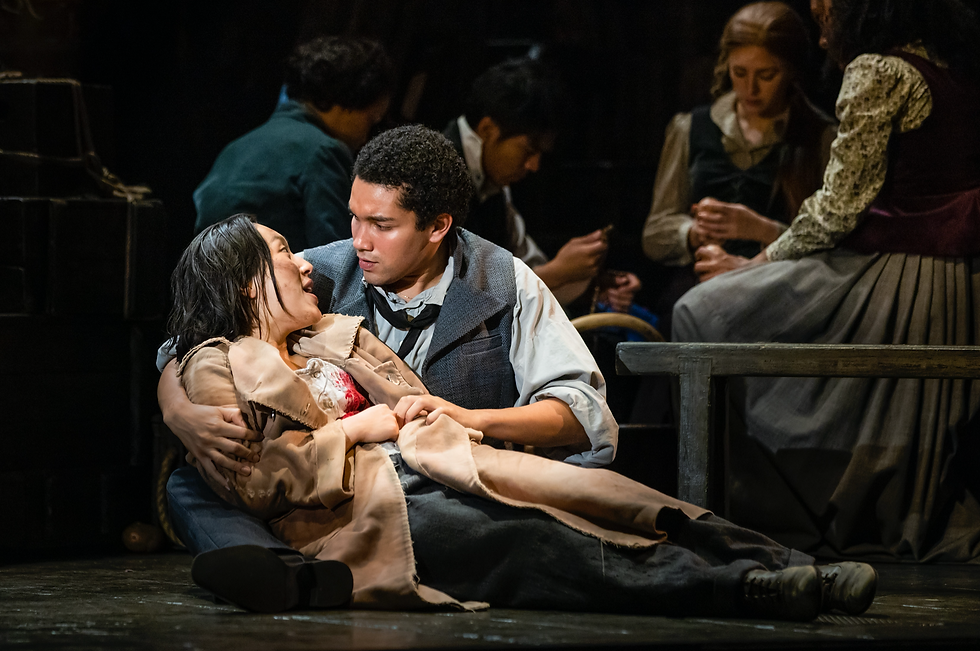
Continuing at the Hollywood Pantages Theatre through Sept. 10, “Les Misérables” offers a soul-stirring escapade through embellished French history. The audience can’t help but be emotionally swept away on a sea of sound by a talented cast belting soliloquies to a bombastic yet melancholy score.
Based on Victor Hugo’s 1862 novel—with music by Claude-Michel Schönberg and lyrics by Herbert Kretzmer, written in 1985 and updated by Schönberg and Alain Boublil in 2009 —the story follows ex-convict Jean Valjean upon his release from imprisoned slavery in 1815 through his conversion to practical sainthood by 1832.
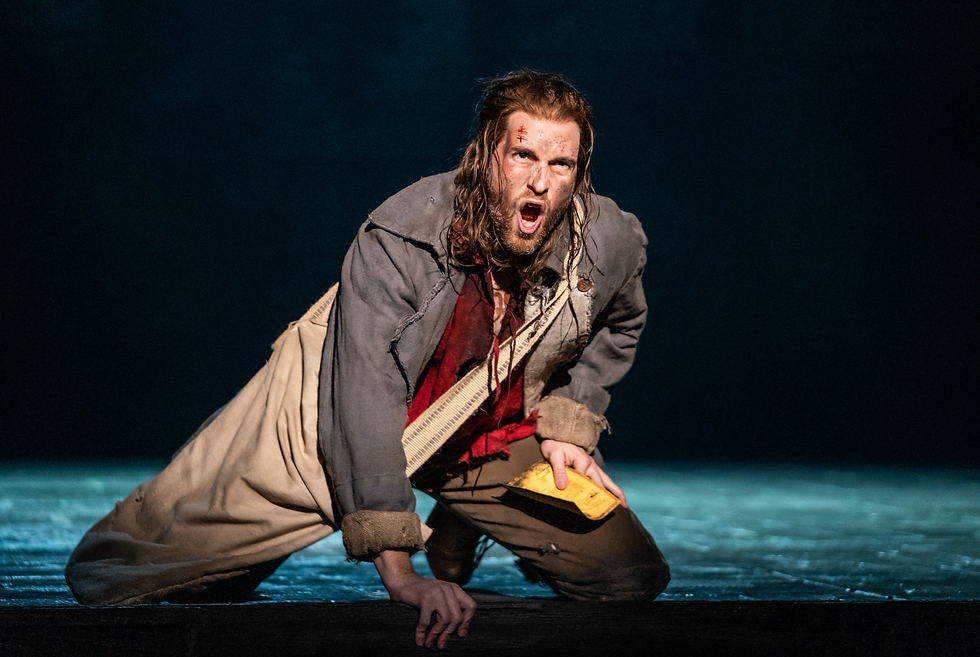
During those nearly two decades, Valjean (Nick Cartell) evades the clutches of an obsessed Inspector Javert (Preston Truman Boyd), adopts his daughter Cossette (Addie Morales) from greedy innkeepers at the behest of her dying mother Fantine (Haley Dortch) and, when Cossette is grown, saves her boyfriend Marius (Gregory Lee Rodriguez) from likely death following a student-led revolution on the streets of Paris.
If that seems like a lot to cover in a musical, it is. Though well-paced by directors James Powell and Laurence Connor, the episodic story lurches at times, with years passing between scenes. The music, exquisitely delivered by orchestral conductor Brian Eads, similarly swings from boisterous horns and percussion to lilting strings. Vocal arrangements sometimes harmonize with the music and sometimes work against it. The overall effect is uneven and sometimes jarring—though always intriguing.

That disconcerting effect—underscored by the melancholic tones of flat musical keys—works well with the story’s themes of poverty and exploitation. As an ex-prisoner, Valjean can’t find honest work and must resort to stealing again. Fantine must leave her young daughter with a greedy, mistreating couple while she works in a factory and then sells her hair and falls into prostitution after she loses her job for being an out-of-wedlock mother.
Impoverished masses and factory workers sing “At The End of the Day” about struggling to survive with no outside help. Fantine sings in the past tense about a kinder world in “I Dreamed a Dream.” Valjean sings his “Soliloquy” about being saved from thievery only through the compassion of a priest (Randy Jeter) who trusts him so much to save his own soul that he gives Valjean more silver than he has stolen so he doesn’t have to steal anymore.
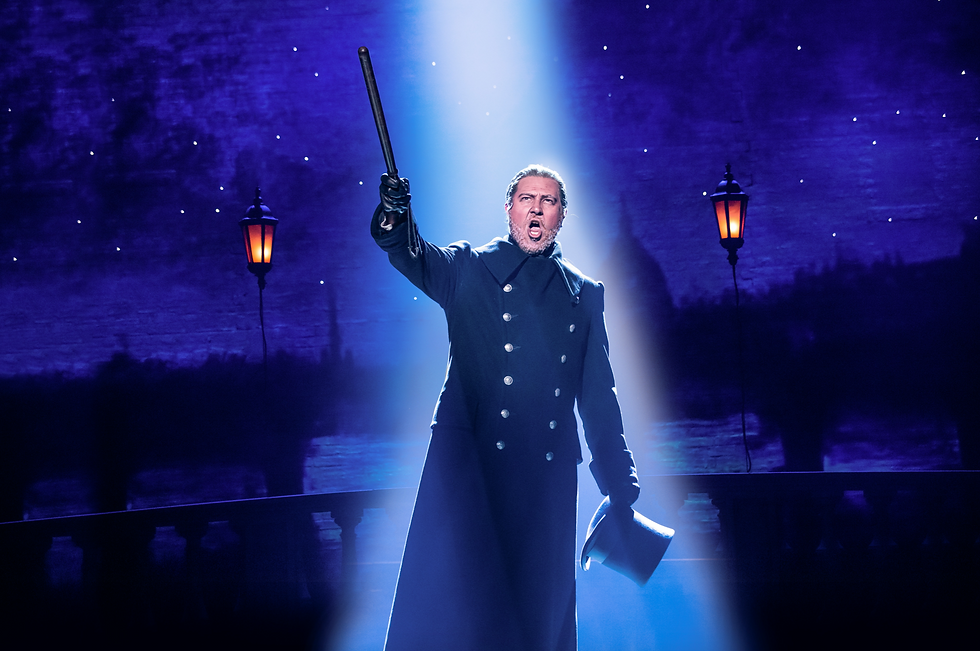
A dark set (designed by Matt Kinley, inspired by Victor Hugo’s paintings) reinforces the misery, punctuated at times by stark lighting (by Paule Constable), clever video projection of a Paris bridge and sewers (by Finn Ross and Forty-Nine Production), and the bright red flag of bloody revolution waived in vain by idealistic students. The oppressed and impoverished people don’t rise up to fight with them after all.
By the time Valjean has done his best to ensure happiness at least for Cossette and Marius—having saved her from certain impoverishment and him from certain death for trying to change things— the greedy are now the elite.
The grotesquely evil (yet darkly funny) Thénardier (an animated Matt Crowle) and his wife (Christina Rose Hall) seem to have become nouveau riche “Beggars at the Feast,” having profited from the failed revolution.
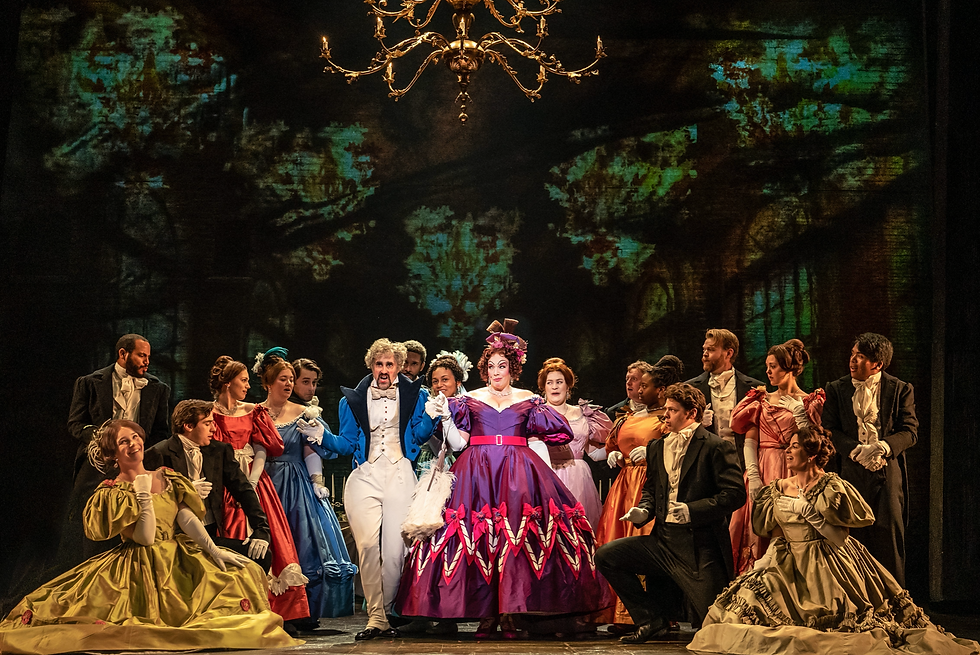
Along the way, the Thénardiers’ savvy daughter Éponine (Christine Heesun Hwang) also loves Marius. Though her love is unrequited, she follows him to her own bitter end. Hwang’s strong voice balances well the three young lovers’ shared “A Heart Full of Love” and is especially spectacular in her soaring soliloquy, “On My Own.”
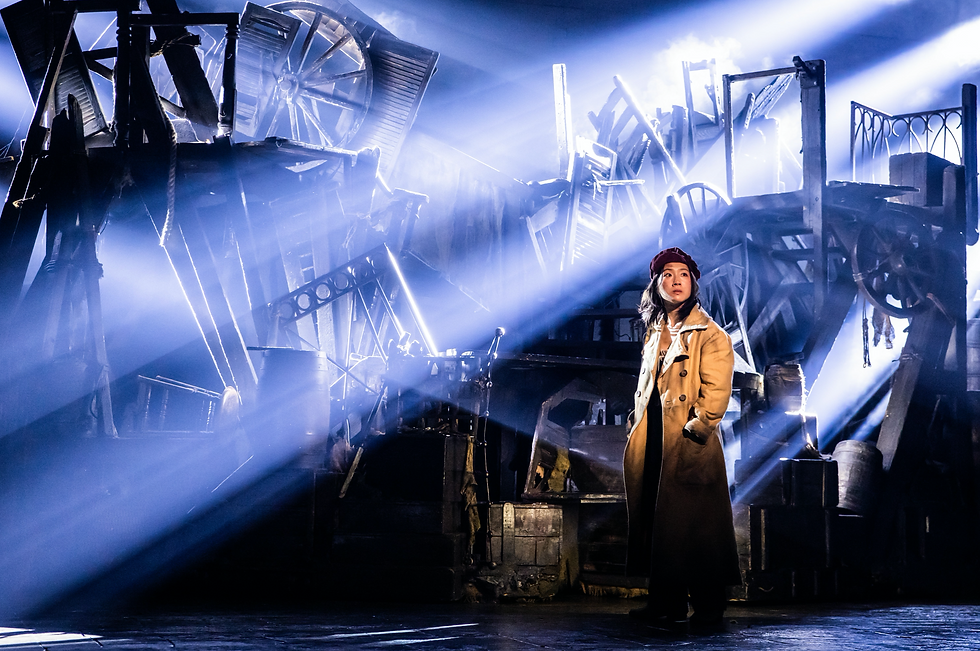
Rodriguez as Marius is similarly poignant in lamenting his lost friends in “Empty Chairs at Empty Tables.” And Boyd as the stalwart Javert shares gruff yet righteous feelings in “Stars” and his pained “Soliloquy” while on a bridge trying to reconcile Valjean’s fugitive past with his current goodness in letting Javert live when he had the chance to kill him.
Through these songs, “Les Misérables” highlights the novel’s emo moments, allowing the audience to dwell in the characters’ feelings as larger social forces swirl around and through them.

But it is the sweet and soaring “Bring Him Home”—Valjean’s imploring plea to God to save Marius’s life during the ill-fated revolution—that is the emotional peak of the production. Through Cartell’s exceptional vocal range, we hear Valjean’s soul cry longingly to God for a boy he knows only through his daughter’s love, but for whom he is willing to trade his life.
Such spiritual and emotional depth allows “Les Misérables” to transcend its specific historical context and reach our hearts today. Sadly, its wrenching themes pervade our own culture as we struggle to shelter the poor and homeless, rehabilitate convicts, prevent child exploitation and even provide affordable childcare.
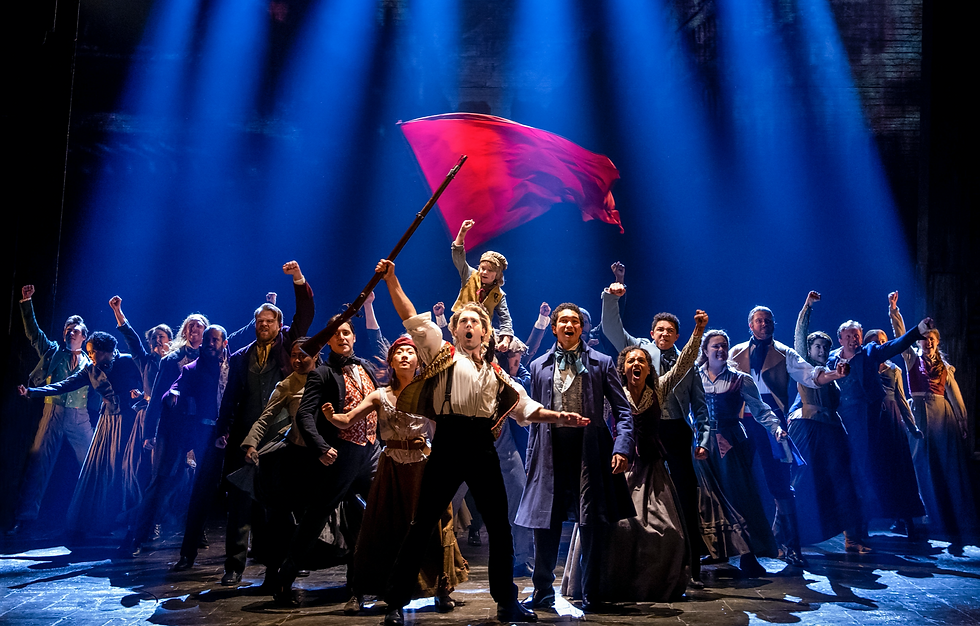
Some things may never change. Yet “tomorrow comes” with “distant drums” potentially bringing another crusade, as the cast sings so precisely and stridently in “Finale”—creating a final wall of inspiring sound to infuse our spirits with hope.
The force of its music and strength of its heart are the main reasons to experience “Les Misérables.” Perhaps inspiring enough to jumpstart our own social justice revolutions? Like the tormented characters in this epic musical, we can only hope.
“Les Misérables” continues at the Hollywood Pantages Theatre, 6233 Hollywood Blvd., Los Angeles, through Sept. 10, with shows Tuesdays through Thursdays at 7:30 p.m., Fridays at 8 p.m., Saturdays at 2 p.m. and 8 p.m., and Sundays at 1:00 p.m. and 6:30 p.m. Tickets start at $45 and can be purchased by calling the box office at (866) 755-2929 or visiting BroadwayinHollywood.com. Run time is 2 hours and 55 minutes, including intermission.
“Les Misérables” will also perform at Segerstrom Center for the Arts in Costa Mesa from Sept. 19 to Oct. 1. For tickets and information, visit www.scfta.org or call (714) 556-2787.



Comments